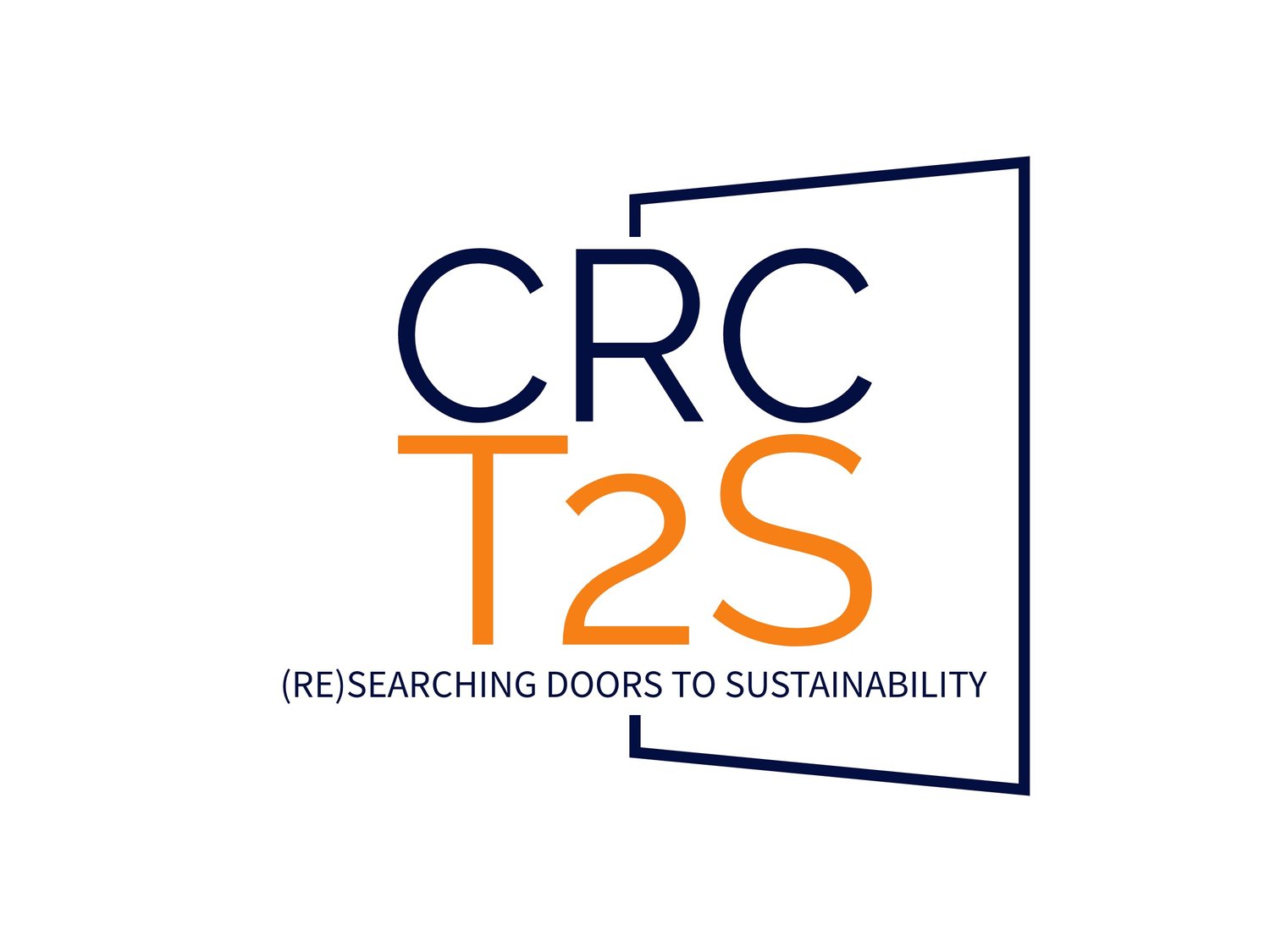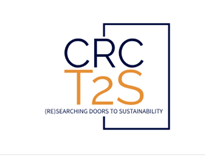“Transition governance”: exploring conditions of possibility for a large-scale eco-social sustainability transition
CRC T2S Pilot project: Faith Institutions Advancing Transformation (FIAT)
The FIAT project deals with the untapped potential (as well as risks) of Church institutions as an emerging sustainability transition agent. This constitutes a promising yet virtually unexplored scholarly field (Gudynas, 2018; Schneidewind, 2018; UNEP, 2016; Veldman et al., 2012; Vogt, 2018), which involves key dimensions of sustainability transitions and their governance (Biermann, 2019; Burch et al., 2019; Köhler et al., 2019) such as agency, a changing governance architecture, and issues of power – e.g. through the influence of religions spanning from individual subjectivation processes to global mobilization potential –; but also “soft” dimensions such as distinct imaginations, reflexivity and adaptiveness of their own institutional and epistemic role vis-à-vis sustainable development, which is the topic of Beling’s co-edited volume Desarrollo non Sancto (“Unholy development”) (2019), published by Siglo XXI Editores in Mexico. Indeed, religions have profoundly influenced psychosocial ways of feeling, thinking, and acting throughout history, and can potentially offer an effective complement to current techno-rationalistic-utilitarian governance approaches, helping the cultural assimilation of eco-social meanings and practices in larger social contexts.
The relevant theoretical question to be addressed through research is: under which conditions can religion effectively perform the role of sustainability transition agent?
In order to address this question, Dr. Beling and his team of research assistants are looking at two ground-breaking case studies of how the church can be an agent of sustainability transition through innovative church-based institutional arrangements: The Pan-Amazonian Ecclesial Network (REPAM) and the Canadian Kairos network. Both networks work as a platform for articulation and mobilization, service provision, policy advocacy, cultural-practical innovation and individual orientation, while linking the local and the global under a common discourse: promote the transition to social-ecological sustainability.
Case study 1: REPAM and the “Amazonization of the church”
In its biological and cultural richness and diversity, as well as in the exponentially progressing depletion thereof as a result of unsustainable glocal development patterns, the Amazon basin can be seen as a ‘small universe’ mirroring the relationship between humanity as a whole and “our common home” (Pope Francis), and therefore a critical setting to experiment with socio-ecological transformations. The Pan-Amazonian Ecclesial Network (REPAM) is an ecclesial service, platform and network founded in 2013, which promotes cooperation among Church organizations, civil society actors, and the diverse population groups and communities living in an area of 33,5 million inhabitants, who collectively stand in defense of cultural and biological diversity in the face of an ever-expanding extractive frontier – the latter becoming forcefully apparent with the unprecedented rates of forest-burning which made news-headlines worldwide in August 2019. REPAM can thus be understood as an unprecedented experiment in church-mediated commoning (Gibson-Graham et al., 2016) at the meso-/macro-societal level.
Yet the REPAM experiment is relevant not only because of the ecological and cultural importance of the Amazon region, but also due to its model-character. Indeed, REPAM has kickstarted a domino-effect of (self-)reflection and transformation across geographical scales and institutional levels. Indeed, REPAM is branching into various analogous experiments in “other biomes/ territories that are essential for the planetary future” (REPAM, 2019): the Congo River Basin, the Mesoamerican Biological Corridor, the tropical forests of the Asia Pacific region, the Great Chaco and the Guarani Aquifer in South America. In addition, the Catholic church, in particular, is undergoing a process of institutional self-reflection at the global level drawing on the REPAM experiment (the “Amazonization of the church”, in Pope Francis’ wording). The Special Synod “Amazon: New paths for the Church and for an Integral Ecology“, held in Rome in October 2019, constituted a historical “occasion to encourage profound changes in the way the Church can accompany and respond to the signs of the present times that threaten life” on Earth (REPAM, 2019).
Case study 2: KAIROS-Canada
KAIROS is a joint venture ecumenical program administered by the United Church of Canada, which unites eleven Canadian churches and religious organizations working together across religious and cultural lines on issues of common concern - reconciliation, human rights and ecological sustainability and justice being cross-cutting themes. KAIROS strives to transform public discourse and promoting social change “through research and policy development, theological reflection, education, advocacy, partnership, lobbying, and grassroots action”, helping to “connect churches, issues, regions and communities”. KAIROS is thus seeking to fulfill a similar institutional role to what REPAM is striving to do in the Amazon.
Moreover, incidentally, the parallels between the Canadian and Amazonian contexts are significant. They include the planetary impacts of local economic activities (in particular, the oil industry), coupled with the reliance of the state on revenues from extractive industries (royalties and taxes); multijurisdictional oversight or coordination of extractive activities, often leading to conflict among sovereign (Amazon basin) or else autonomous states (Canada); resistance by environmental groups and (part of) the indigenous world; a diverse ethnic, cultural and religious composition of the local population; and shifting social expectations as a result of ongoing processes of historical memory, truth, and justice seeking to correct structural dynamics of colonization, subalternization and cultural assimilation. These parallelisms promise to illuminate complex interrelations and causation patterns, thus enabling mutual learning between the two territorial contexts, for example, regarding the historically ambivalent role of religious institutions vis-à-vis economic and political power, cultural diversity (particularly, with regard to indigenous cultures), or the (re)production of particular socio-natural practices and discourses. However, there are also key differences, including uneven regulatory leverage by states over local or multinational extractive enterprises; dissimilar legal architecture regarding indigenous rights; different levels of international monitoring and political pressure for the protection of local ecosystems, among many other distinct territorial characteristics (population distribution and density, richness and fragility of affected ecosystems, local political-economic power structures, etc.), or else varying territorial priorities or concerns of faith-based organizations (FBOs) and religious institutions.
Guided by the general question stated above: under which conditions can religion effectively perform the role of sustainability transition agent?, this research seeks to address two specific questions: 1) How and why are social-ecological narratives, practices, and institutions (not)transformed in the Amazon basin through the impact of REPAM, in tandem with Church-institutional changes? 2) How does the REPAM-experience illuminate sustainability transformation experiments driven by the ecumenic network KAIROS in Alberta/Canada?
The general research goal is to generate empirically based insights into the current and potential role of institutionalized religion in advancing a global sustainability transition, as well as the implications thereof for sustainability governance theory.
The project has been ongoing since September 2022, and is currently closing its first phase, which consists of producing a baseline description of both the evolution of the state of affairs in the Amazon during the decade since REPAM’s creation and related church-institutional developments based on desk research, which should help identify relevant monitoring units to start field work in Phase II of the project.
You can find more about the developing nature of this project and view its working paper in our Publications page here. For updates on this project or to ask us a question, contact us here.
Related publications
Beling, Adrian (in press). The Catholic Church in Times of the Ecological Crisis: From Laggard to an Engine of Societal Change?, Religion & Development, Humboldt-University, Berlin. Special issue “Care for the Poor, Care for the Earth: Catholic-Muslim Dialogues on Development”, guest eds. Séverine Deneulin and Masooda Bano
Beling, Adrián E. (2022). From “Pan-Amazonia: source of life at the heart of the Church” to “A synodal Church: source of life at the heart of the Amazon (and of the world)? CRC T2S WP 1. Report commissioned by the Institute of Development Studies (IDS) and the Laudato Si Research Institute, University of Oxford (UK) on the Pan-Amazonian Ecclesial Network (REPAM), March 2022
Beling; Adrián E. and Vanhulst, Julien (2019). Unholy Development: Religion as an Emerging Voice in the Global Debate on the Future of the Planet. Alternautas, Vol. 6, issue 2, December 2019.
Beling, Adrián E. (2019). Ecología integral: la irrupción de la religión en el debate global sobre el futuro del planeta, en Anuario de Ecología Integral y Desarrollo Saludable 2019, Universidad Católica de Santa Fe, Argentina. https://www.ucsf.edu.ar/wp-content/uploads/2020/01/Anuario-2019.pdf
Beling, Adrián & Vanhulst, Julien (Eds.), Desarrollo non Sancto. La religión como actor emergente en el debate global sobre el futuro del planeta. Siglo XXI, México D.F. ISBN: 978-607-03-0995-3
Beling, A. E. (2021). "Laudato si’ como respuesta a la postergada pregunta por el rol de la Iglesia en la Gran Transformación socio-ecológica". Miríada. Investigación en Ciencias Sociales. Buenos Aires: Universidad del Salvador
Beling, A. E. (2020). Laudato si‘ oder die Rolle der Kirche in der sozial-ökologischen „Großen Transformation“. Wort & Antwort 61, pp. 115-121. DOI: 10.14623/wua.2020.3.115-121

